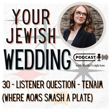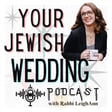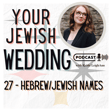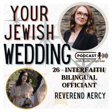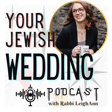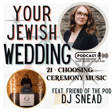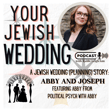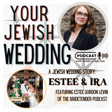
23 - A Thorougly Modern Ketubah (feat. Bekah from Foreverie Paper)
Bekah specializes in simple, beautiful, and personal ketubahs for each of her couples. Using her experiences in interfaith and Jewish life from childhood onward, she approaches each couple with the curiosity and knowledge to make their ketubah process mean much more than just picking out a piece of paper to sign.
Find Bekah and work with her at www.foreveriepaper.com
Podcast - http://www.unsettledpod.com/ by Max Freedman
Book - https://www.jaymichaelson.net/books/godinyourbody/
Don't forget - you can reach me (Rabbi LeighAnn) any time at www.yourohiorabbi.com or everyonesfavoriterabbi.com or rabbileighann.com !
Fill out the contact form there if you'd like to work with me on your wedding. There are SO many options, from Ketubah consulting to ceremony planning. If there's something you have in mind, don't hesitate to ask - I'm here to help!
IG: @yourohiorabbi
Podcast IG: @yourjewishweddingpodcast
Send questions for me to answer on this podcast to:
yourjewishweddingpodcast@gmail.com
Hope to see you next time! Remember - there is ALWAYS more learning to do!
<3 Rabbi LeighAnn



